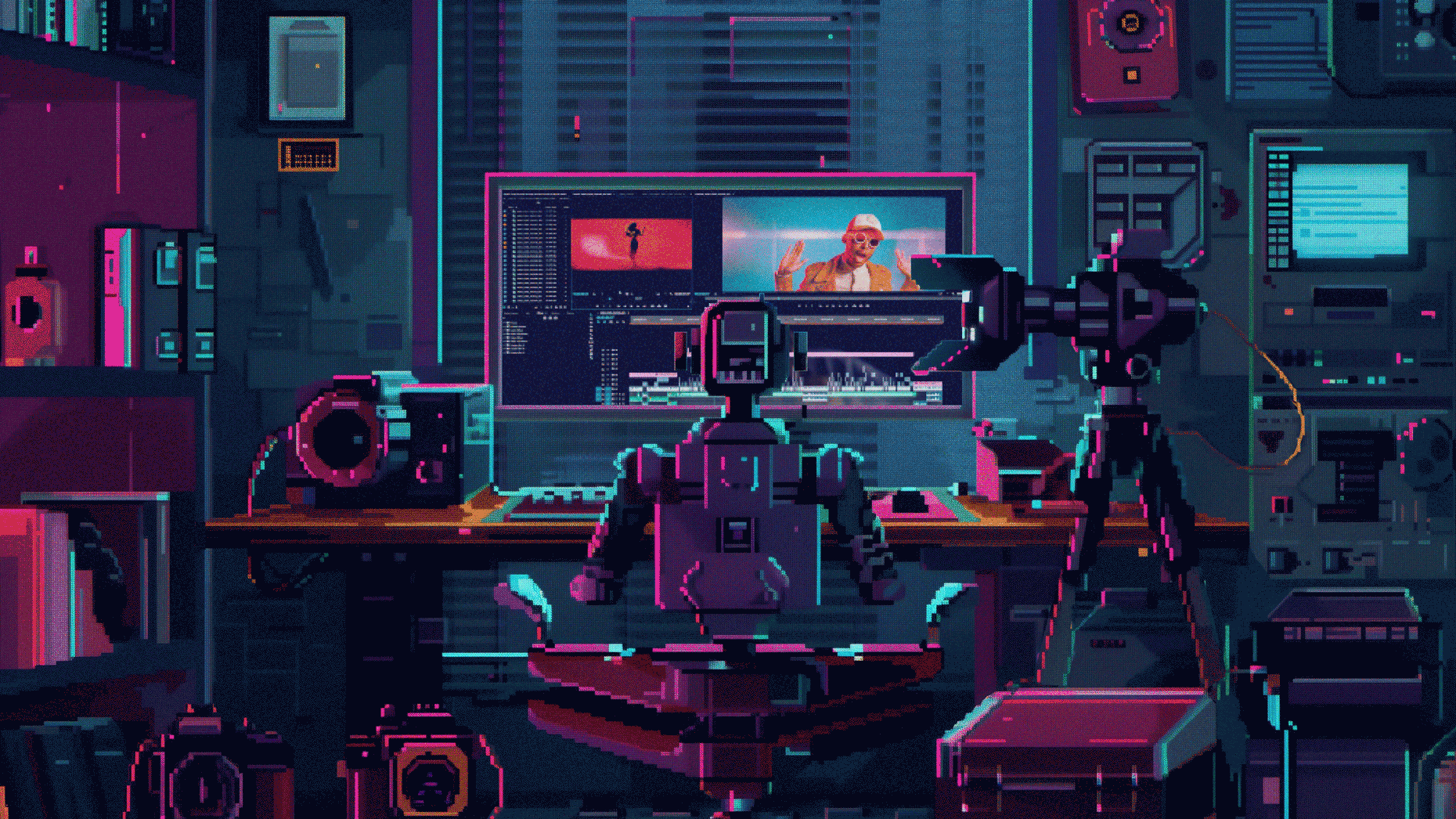An Ode to a Dead Dealmaker
Welcome, Weekenders! In this newsletter:
* How OpenAI’s Sora is transforming everything from Hollywood to videogames to Madison Avenue
* Foreign trade and fearsome foes!
* A guide to acquiring one of Silicon Valley’s favorite fads: a chief of staff
* Plus: The VC and surprise SF mayoral front-runner; the TikToker who can explain why AllBirds lost flight; and the AI that’s raising questions about human identity.
You know what’s becoming more predictable than spring crocuses? The annual—or at least biannual—effort to ban TikTok in America. We’re closer to such a reality than ever after the House of Representatives passed legislation this week that could bar the Chinese-owned app; it next faces an uncertain fate in the Senate. While Washington lawmakers are busily counting votes, plenty of executives across Silicon Valley and Wall Street are counting up their dollars amid parlor-game speculation around whether some inventive M&A might save TikTok. Maybe that would involve Walmart. Or Larry Ellison and Oracle. Hell, even Steve Mnuchin, the former Trump administration Treasury Secretary who previously tried to deport TikTok, is mulling a bid.
Many other plausible candidates, like Microsoft, seem content to sit out the frenzy. That makes sense. Big tech hasn’t had much M&A leeway under Federal Trade Commission Chair Lina Khan, and there’s no reason to expect she’d loosen the restraints over TikTok.
Let’s assume the would-be buyers could actually talk China into allowing the sale, which is no sure thing (as my colleague Martin Peers has pointed out). Before they rush off to hire Michael Grimes and toss in a formal bid, I wish they’d pay attention to something else that happened this week: the death of Gerald Levin. Who? The guy once moved in the same circles as Ted Turner and Barry Diller, but he passed away a much-diminished figure. The slightly older—or more studied—among you will remember why: He was the Time Warner CEO who decided to combine that company with AOL. It seemed like a great idea. It wasn’t. Disaster swiftly befell the combined business and Levin, too, costing him his job, his reputation and much of his wealth.
If anyone takes a moment to stop and smell the crocuses, Levin’s fate could serve as a reminder that what may seem like a lucrative MEGADEAL, as The New York Times breathlessly declared the AOL-Time Warner tie-up at the time, isn’t necessarily all it’s cracked up to be.
Abram Brown, editor of The Information’s Weekend section, is grumpily wondering why fake spring in New York exists only during the work week. Send him some sunshine: Reach him at [email protected] or find him on X.
The Big Read The Sora Saga Has Only Just Started
The Sora Saga Has Only Just StartedA couple weeks back, venture capitalist Matt Turck had a funny line about what our future will hold as we get more apps like Sora, OpenAI’s astonishing-looking video tool: In 2025, Turck predicted, we’ll be able to ask Sora “to create a new season of Narcos to watch tonight, but have it take place in Syria with Brad Pitt, Mr Beast and Travis Kelce in the leading roles.”
Is that possible? It sounds like science fiction. Then again, if you had asked even as recently as 2021 whether we’d be this deep into a consumer artificial intelligence boom just a few years later, I would’ve looked at you like you had six fingers. And while the future isn’t entirely clear, just the anticipation regarding Sora is already changing every industry built around video—as our Margaux MacColl details in this week’s Big Read. She examines three of the fields experiencing the most intense tumult: Hollywood, videogames and Madison Avenue. In Margaux’s reporting, she spoke to one special effects artist who recalled watching OpenAI’s Sora demo debut last month and thinking: “Well, I’m gonna get replaced in two years now.”
 Could a Venture Capitalist in Chief Finally Fix San Francisco’s Toxic Politics?
Could a Venture Capitalist in Chief Finally Fix San Francisco’s Toxic Politics?Mark Farrell isn’t one to speak subtly about San Francisco’s woes. “Public safety has never been worse. Our economy has hit the skids,” he told returning Weekend contributor Scott Alan Lucas recently. “And there’s zero vision to turn services around.”
Since jumping into the mayoral race last month, Farrell, who’s a co-founder of Thayer Ventures and who briefly served as San Francisco mayor in 2017, has become a top contender in November’s election. To win, he hopes to appeal to voters as a moderate-left bridge between the city’s deeply divided clans. And should he get to govern again, he has a plan to mitigate the city’s perception as an unsafe hellscape (hire more cops, fire the police chief) and convince corporations to return to it (tax credits to big industries, tied to their spending on local businesses, among other initiatives).
“I hate the term doom loop, but unfortunately the headlines every week contribute to that narrative and make it more of reality than the week before,” Farrell said. “It’s like the closing of Macy’s last week. It was a gut punch for the city. It’s been an iconic part of Union Square for decades. The next mayor needs to truly change the narrative for our city.”
 How to Hire—and Deploy—a Great Chief of Staff
How to Hire—and Deploy—a Great Chief of StaffDemand for chiefs of staff has exploded across Silicon Valley, Hollywood and Wall Street lately, even though many leaders seem unsure exactly what they would do with such a role. Kanjune Qiu, who was billionaire Drew Houston’s chief of staff before co-founding Nvidia-backed Imbue, offers a neat description: “They can act like a double you.”
Qiu spoke to Weekend newcomer Diane Harris, former editor in chief of Money magazine, as Diane assembled this piece containing an immense amount of practical advice about how to identify the right person for a chief of staff job and how to integrate the new position into a company’s ranks.

Following: The New Rules of Shopping
TikToker Devon Rule has a stark motto: “We don’t need more stuff in this world,” she told me last week.
Since 2022, Rule, who also runs Indyx, a virtual closet app, has sought to make content that helps people cut down on their consumption—while also examining the companies enabling that consumption. She’s done a number of clear-eyed breakdowns of why so many direct-to-consumer businesses like Kristen Bell’s diaper company Hello Bello or Rent The Runway have imploded. My favorite one dissects the “unholy marriage” between venture funding and such startups, examining how that money fed false hopes about the value of the customers they spent heavily to acquire. Spoiler: Brand loyalty among those shoppers was “a hope and a wish rather than a reality.” If my viewing habits are any measure, Rule won’t have nearly as much as trouble keeping her audience around.—Margaux MacColl
Reading: A Bad Man’s Bot
Of all the things AI and robotics could miraculously replace—dangerous labor, dreary busywork—it’s been pretty disturbing to see people seemingly excited about how they could also replace women. Sierra Greer’s new novel “Annie Bot” imagines a world where they succeed in doing so. The book introduces us to Annie, a lifelike android who has been programmed as her owner Doug’s “Cuddle Bunny.” But when Doug grows bored with her simplicity, he decides to turn on “autodidactic” mode, where she can learn, adapt and experience emotions. Both owner and AI system are surprised by the complexity of Annie’s opinions and desires as she becomes more human.
“Annie Bot” author Sierra Greer—a pen name she used to separate the rather NSFW work from her young adult novels—began writing it in 2017 after reading an article about Google Brain. In early drafts, she told me, “I was writing a short story about a consciousness that woke up in a closet, and I realized, pretty much as she opened the door, that she was an AI robot. As soon as I saw that she was almost human and she was in a relationship with a human man that only saw her as an object, that’s when I realized I had the kernel of something really, really rich here.” She’s touching on a timely human debate: How much of our idea of what it means to be a woman is biologically innate, and how much of it is just programmed by men?—Julia Black
Watching: Sails, Sales and Swordplay
Sharpen your throwing star and tie off your topknot—because “Shogun” is a stunning, sweeping epic in an entertainingly violent 15th-century Japan. Based on the James Clavell bestseller, this FX series debuted last month with a masterful blend of English- and Japanese-speaking performances and has quickly become the talk of Hollywood (though I do wonder if its commendable use of Japanese dialogue is slowing its meme culture).
As “Shogun” starts, a British sailor finds himself washes ashore in the Land of the Rising Sun, where storm clouds darken the horizon. A war between the country’s great houses looms, and that sailor falls in with one clan lord, Toranaga, played with steely cunning by veteran actor Hiroyuki Sanada (“John Wick: Chapter 4,” “Westworld,” “47 Ronin”). It’s all dead bodies, the body politic—and business, with the competition between European nations to commercialize Japanese trade further complicating the combustible situation.—A.B.
Makes You Think
Tic-Tac-t’oh!
